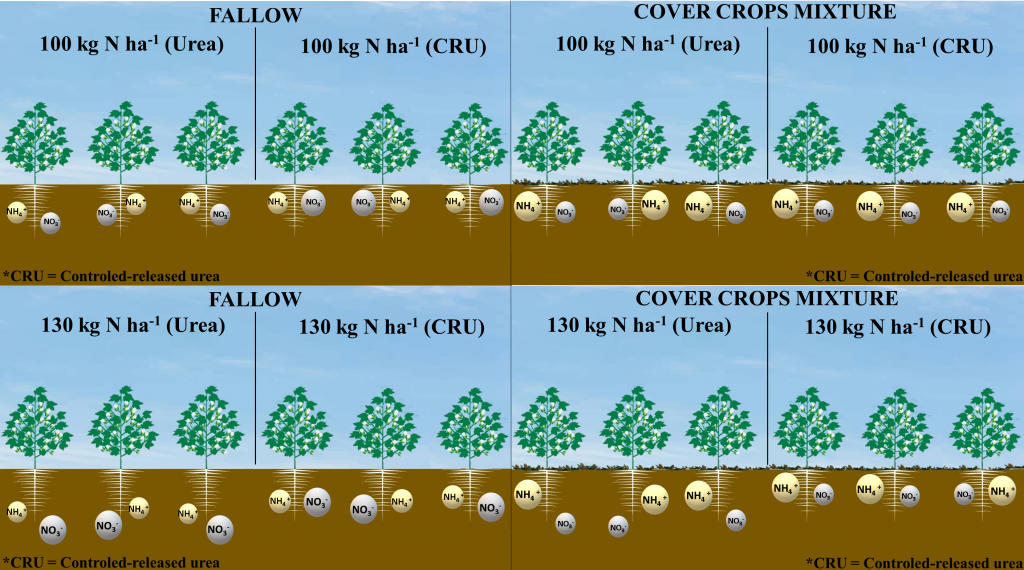Cover crops and controlled-release urea decrease nitrogen mobility and improve nitrogen stock in a tropical sandy soil with cotton cultivation
02/Feb/2022
ABSTRACT Sandy soil often has low nitrogen (N) stock. Thus, crops grown in sandy soil rely on high levels of N fertilization. The use of cover crops and efficient fertilizers can increase N stock in the soil and N availability in the topsoil, and reduce overall fertilizer costs. The objective of this study was to evaluate the effects of cover crops (fallow, a single grass species (ruzigrass), two grass species (ruzigrass + millet), one grass species (millet) with legumes [lime-yellow […]
MANAGEMENT OF IRRIGATION AND NITROGEN FERTILIZERS TO REDUCE AMMONIA VOLATILIZATION
01/Dec/2015
ABSTRACT Nitrogen losses by ammonia (NH3) volatilization can be reduced by appropriate irrigation management or by alternative N sources, replacing urea. The objective of this study was to evaluate the efficiency of irrigation management and N source combinations in decreasing NH3 volatilization from an Argissolo Vermelho Distrófico típico cultivated for 28 years with black oat (Avena strigosa) and maize (Zea mays), under no-tillage in the region of Depressão Central, Rio Grande do Sul, Brazil. The experiment was arranged in a […]
Influence of ammonium sulfate in mixture with urea on the volatilization of NH3-N
01/Sep/2002
The objective of this study was to evaluate the influence of addition of ammonium sulfate in mixture with urea on the volatilization of NH3-N. An experiment was carried out under controlled laboratory conditions at the Soil and Plant Nutrition Department (ESALQ/USP). The experimental design was completely randomized with five replications and five treatments. Each treatment was obtained by the mixture of urea (330 mg) with ammonium sulfate at different rates (0, 75, 150, 225 and 300 mg). The fertilizer mixtures […]

